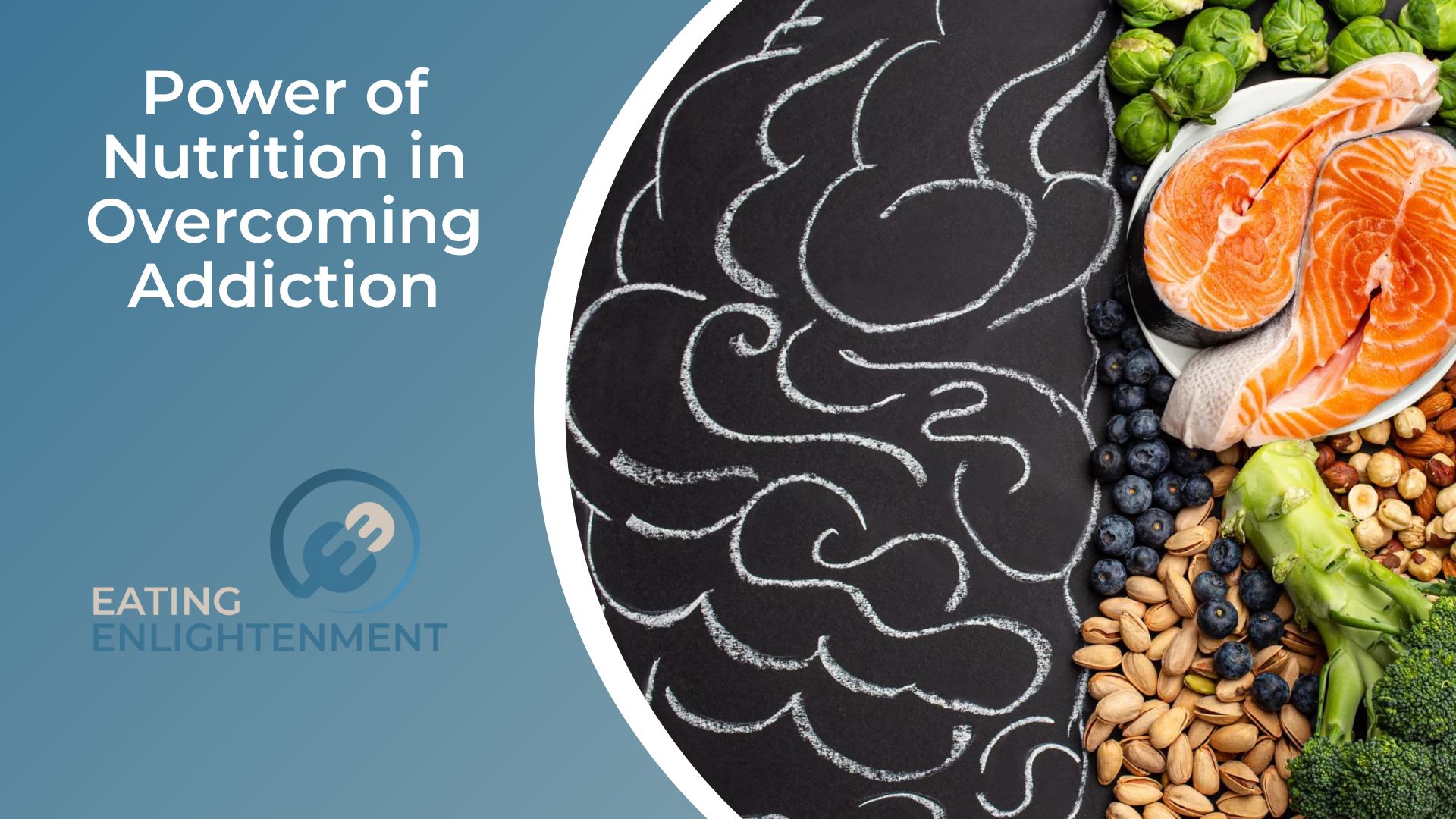Have years of using and abusing drugs left you feeling defeated and discouraged? Do you like that no matter what you try, nothing works to break the destructive cycle of drug abuse? It’s time to reclaim control.
The power of nutrition in overcoming addiction is often underestimated, but with its ability to help address addictive behaviors on both physical and psychological levels, it can be incredibly effective in treating substance use disorders — sometimes even more so than conventional treatments alone.
Let’s dig right in!

Causes and Signs of Addiction
Addiction is a complex and chronic brain disease that affects millions of people worldwide. Besides drug addiction and alcoholism, even activities like gambling or gaming are forms of addiction. Here are some signs to look out for:
- Uncontrollable cravings
- Increased tolerance
- Withdrawal symptoms
- Inability to stop
- Loss of control
- Physical dependence
The underlying causes of addiction vary from person to person, but the common risk factors include genetics, environment, and mental health conditions. Symptoms of addiction can range from physical and behavioral changes to emotional and psychological effects. Understanding the causes and symptoms of addiction is crucial in helping individuals seek the proper treatment and support to overcome this devastating disease.
How Nutrition Impacts Addiction
Proper nutrition is an essential component of maintaining overall health and well-being, particularly for individuals who are struggling with addiction. Nutrition impacts addiction in several ways.
Firstly, a nutritious diet supports the body’s natural ability to detoxify chemicals, making it important for individuals in recovery to consume foods that support liver function (garlic and leafy greens). Secondly, a balanced diet can regulate mood and manage stress, both of which can be major triggers for relapse. Finally, good nutrition supports the recovery process by improving sleep quality, energy levels, and mental clarity. Understanding how nutrition impacts addiction can be critical in supporting recovery and establishing a healthy, sustainable lifestyle.
Exploring Nutritional Strategies for Recovery
The road to recovery is a long and winding one, and nutrition can play an important role in the process. Here are some nutritional strategies for overcoming addiction:
- Eat Regularly: Eating regular meals throughout the day can help maintain blood sugar levels, preventing cravings and mood swings.
- Focus on Whole Foods: Whole foods such as fruits, vegetables, and whole grains are not only packed with essential nutrients, but they also provide long-lasting energy and satisfaction.
- Include Healthy Proteins: Eating healthy proteins such as lean meats, nuts, and legumes can help regulate blood sugar levels and boost mood.
- Stay Hydrated: Dehydration can cause cravings for drugs or alcohol, so it’s important to drink plenty of water and other non-alcoholic beverages throughout the day.
- Seek Professional Help: Finally, individuals in recovery need to seek professional help from a qualified nutritionist or dietitian who can create a personalized meal plan tailored to their unique needs.
Different Types of Supplements that Can Help with Recovery
If you are recovering from your addiction, many different types of supplements can assist in the process. Some of the most commonly used supplements include amino acids (L-tyrosine which boosts dopamine levels and 5-HTP which aids in the production of serotonin).
Other popular options include herbs like milk thistle and ashwagandha, which can help support overall liver function and reduce stress levels.
Additionally, omega-3 fatty acids found in fish oil have been shown to have a positive impact on brain function and can help reduce inflammation in the body. It’s important to remember that while supplements can be helpful, they should always be used in conjunction with other addiction recovery treatments and under the guidance of a healthcare professional.
Resources to Help You Reach Your Goals in Overcoming Addiction
Overcoming addiction can feel like an uphill battle, but there are many resources available, like finding a rehab center, to help you reach your goals. One crucial resource is support groups — they provide a community of people who can relate to your struggles and offer support and encouragement.
Therapy is another valuable resource that can help you address the underlying causes of addiction and develop coping strategies. Additionally, many rehabilitation centers offer a comprehensive approach to recovery, including medical support, counseling, and aftercare programs.
Remember, reaching your goals in overcoming addiction is possible, and you don’t have to do it alone. Utilize the resources available to you, and don’t hesitate to reach out for help.

Eating well during addiction recovery is essential, as the nutrients can help rebuild neurotransmitters that were destroyed, balance hormones, and promote natural healing processes in the body. It is important to remember that nutrition is only part of a successful recovery program; other aspects like therapy, medication, and lifestyle changes should also be taken into consideration and worked through with a doctor.
Don’t forget to seek guidance along the way — from friends and family or an expert professional — so that you do not have to go it alone.



